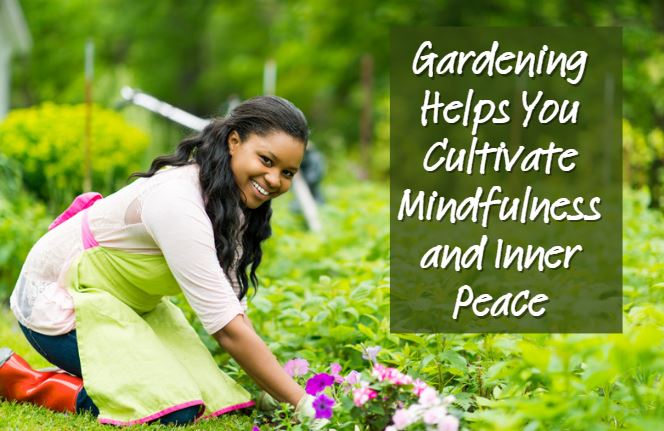Finding inner peace can sometimes be a challenge. Amidst the hustle and bustle, many are turning to gardening as a method to develop tranquility and mindfulness. Gardening, with its blend of physical activity, connection to nature, and creative expression, offers a unique pathway to inner peace.
Here’s how tending to plants can become a therapeutic practice that nurtures the body, mind, and soul.
Connecting with Nature
One of the primary ways gardening creates a sense of inner peace is through a deep connection with nature. Humans have an innate affinity for the natural world and this connection significantly reduces stress and promotes a sense of well-being. Immersing yourself in the sights, sounds, and smells of a garden provides a sensory experience that grounds you in the present, enhances mindfulness, and reduces anxiety.
The act of gardening itself encourages a slower pace and attentiveness to detail. The gentle rustling of leaves, the vibrant colors of blooming flowers, or the earthy aroma of soil all contribute to being more present. These sensory experiences draw you away from the distractions of modern life and into a state of mindful awareness.
Some people feel when you interact with nature in this way, you are also creating a spiritual experience. Gardening allows you to build a relationship with the plants and the earth, as you exchange energy with them, which is known to have a positive healing effect.
Physical Benefits
Gardening is not only good for the mind but also for the body. The physical activity involved in tasks such as digging, planting, weeding, and watering provides a low-impact form of exercise. Working in the garden requires stretching and strength, building muscle and flexibility. Engaging in regular physical activity releases endorphins, the body’s natural mood lifters.
In addition, spending time outdoors in natural sunlight helps your body produce vitamin D, essential for bone health and immune function. Studies have also shown that adequate levels of vitamin D can improve mood and combat depression, making gardening a holistic activity that benefits both physical and mental health.
Emotional and Psychological Benefits
The emotional and psychological benefits of gardening are significant. Tending to plants can be a meditative practice that offers a sense of accomplishment and purpose. Watching a garden grow and flourish under your care provides a tangible result for your efforts and dedication, which can boost self-esteem and provide a sense of achievement.
Gardening also offers a unique form of creative expression. Designing a garden, choosing plants, and arranging them in aesthetically pleasing ways allows for artistic creativity. This creative process can be incredibly fulfilling and therapeutic, as well as providing a constructive outlet for emotions and thoughts.
Cultivating Patience and Mindfulness
Gardening teaches patience and mindfulness, essential qualities for finding inner peace. Plants grow at their own pace, and gardeners learn to be patient and attentive. Nurturing plants encourages a slower, more deliberate approach to life, reducing the impulse for immediate gratification.
The repetitive nature of gardening tasks, such as weeding or watering, can also be meditative. These activities require focus and presence, which can quiet the mind and create a sense of calm. By paying attention to the details of gardening, such as the texture of leaves or the pattern of growth, you practice mindfulness, which is known to reduce stress and enhance emotional well-being.
Community and Connection
Gardening can provide a sense of community and social connection, which again contributes to inner peace. For example, community gardens bring people together with a shared purpose, creating social interaction and collaboration. This sense of belonging and connection is known to lessen feelings of loneliness and isolation, which are often barriers to inner peace.
Sharing the fruits (and vegetables) of your labor with friends, family, or neighbors enhances relationships and creates a sense of shared joy and gratitude. The act of giving and receiving plants or garden produce builds a sense of community and interconnectedness, reinforcing the idea that we are part of a larger whole.
More than a Hobby
Gardening is more than just a hobby. It’s a therapeutic practice that can lead to profound inner peace. By connecting with nature, engaging in physical activity, expressing creativity, and cultivating patience and mindfulness, gardeners find solace and tranquility in this modern life.
Whether you have a sprawling backyard or a small balcony garden, tending to plants can be a powerful way to nurture both your environment and your inner self. So, pick up your trowel and start digging into the inner peace that gardening can bring.

